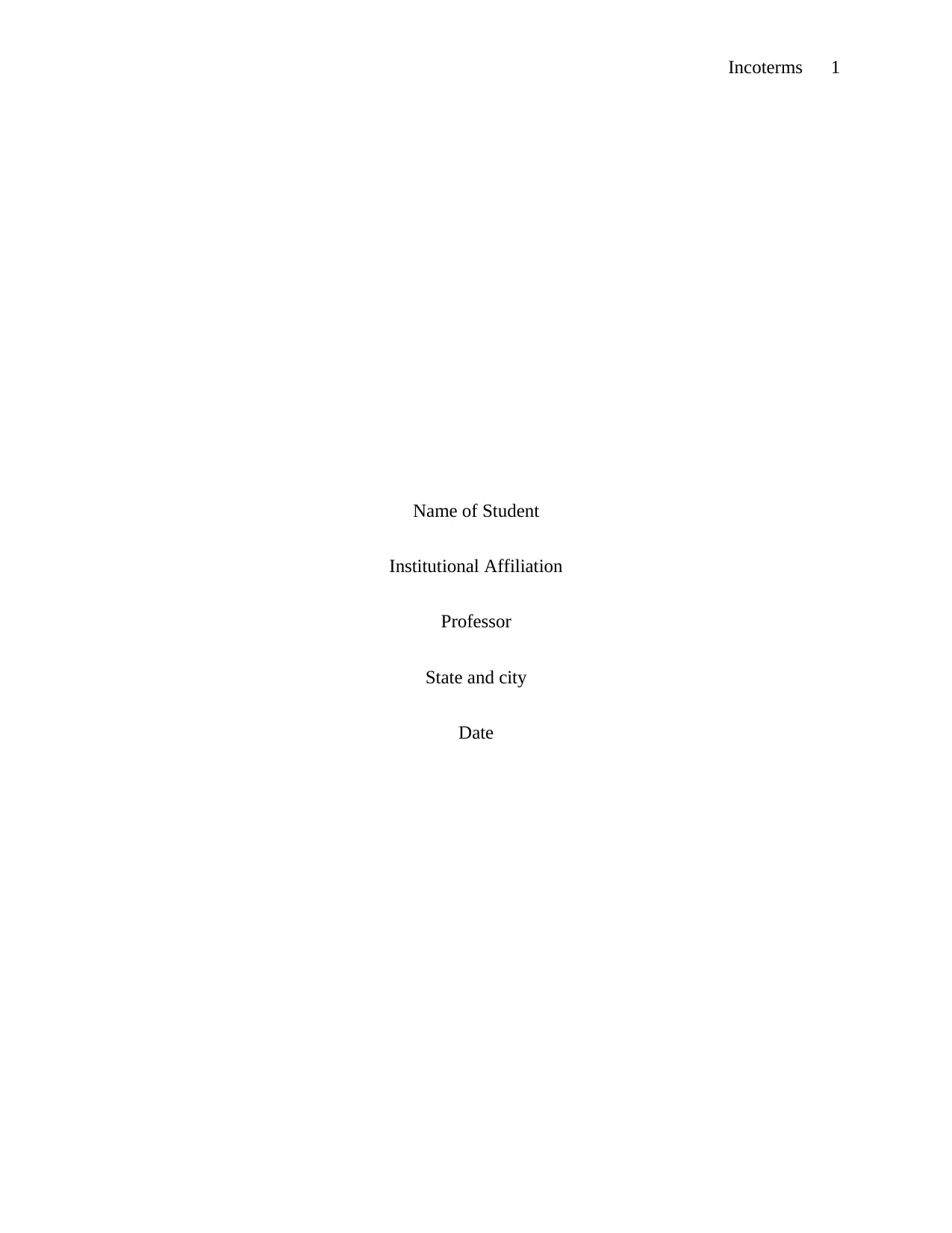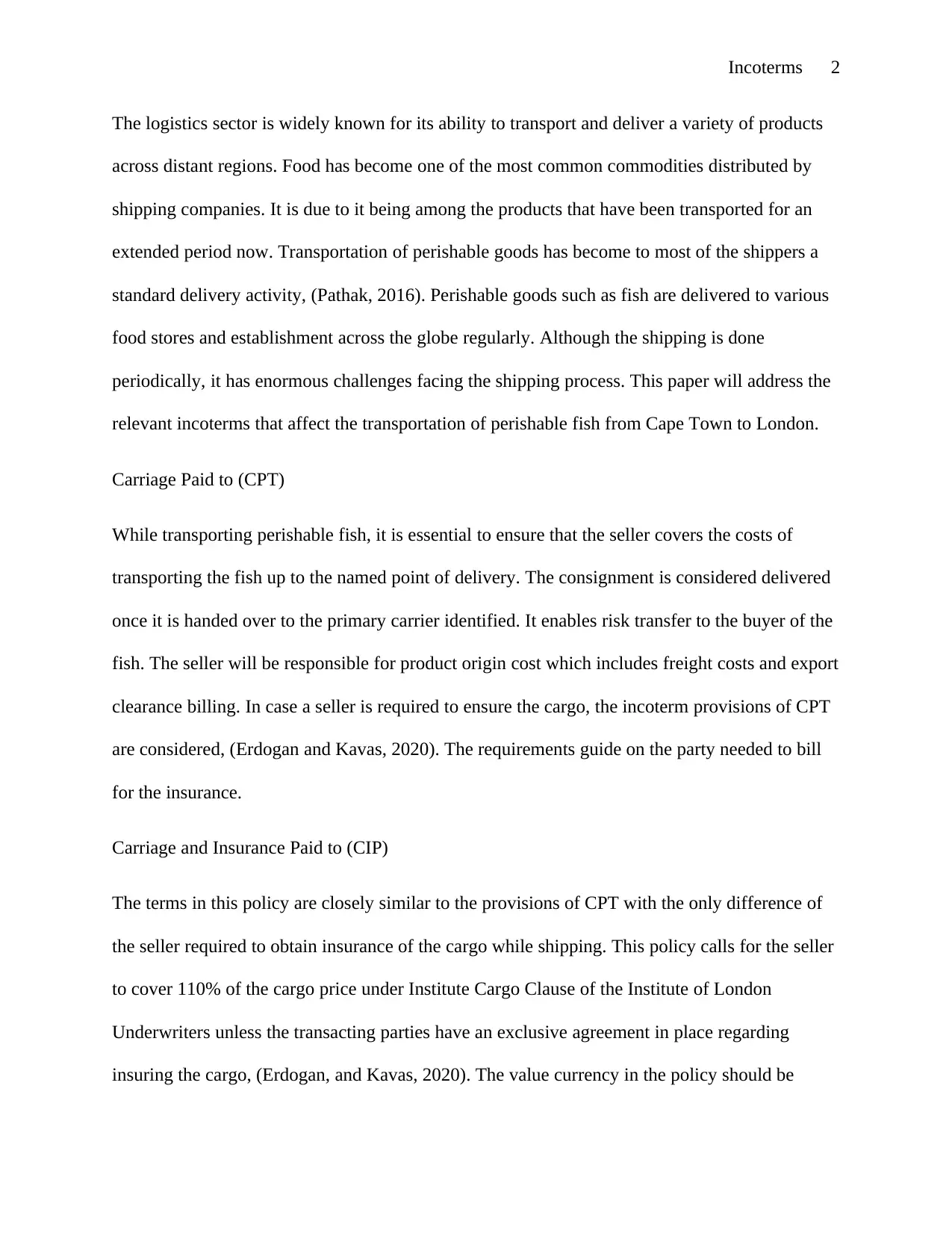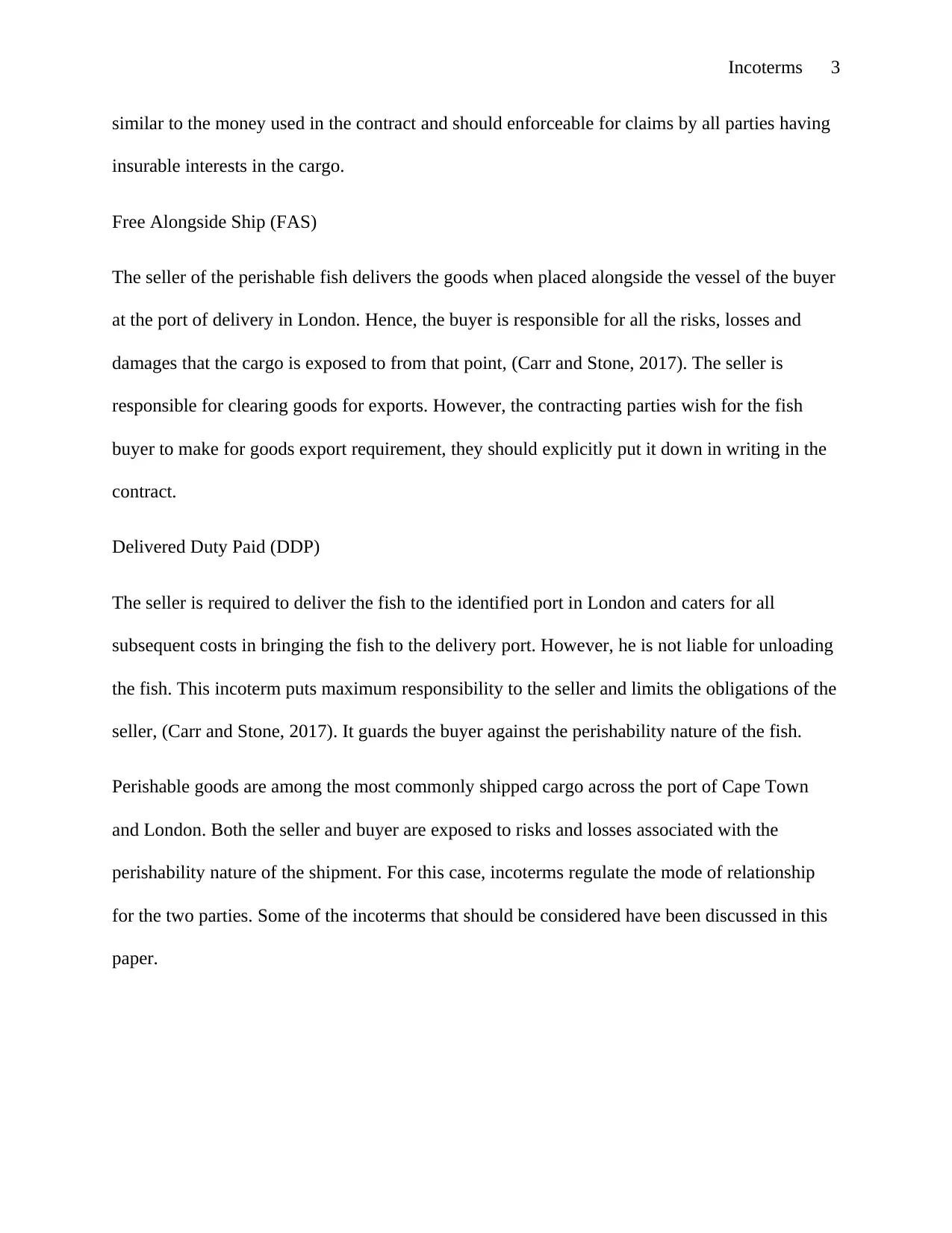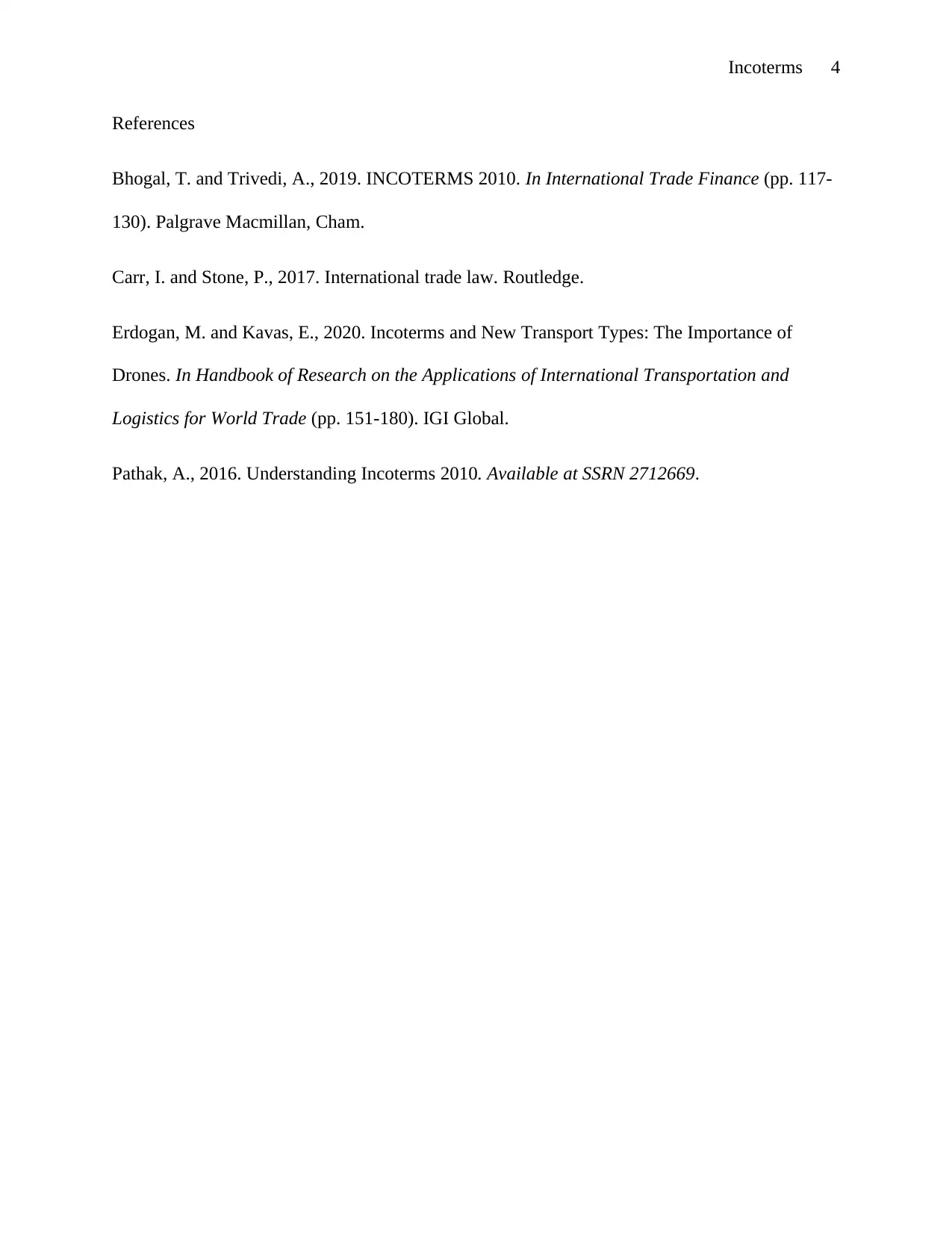Logistics and Incoterms: Perishable Fish Shipment Analysis
VerifiedAdded on 2022/08/14
|4
|734
|14
Report
AI Summary
This report analyzes the logistics of shipping perishable fish from Cape Town to London, focusing on the application of Incoterms. The paper discusses the challenges associated with transporting perishable goods and examines four relevant Incoterms: Carriage Paid To (CPT), Carriage and Insurance Paid To (CIP), Free Alongside Ship (FAS), and Delivered Duty Paid (DDP). It explains the responsibilities of the seller and buyer under each Incoterm, including cost allocation, risk transfer, and insurance requirements. The analysis emphasizes the importance of selecting the appropriate Incoterm to mitigate risks and ensure the safe and timely delivery of the fish. References from academic sources support the analysis, providing a comprehensive understanding of Incoterms in the context of international trade and perishable goods transportation. The report highlights the critical role of Incoterms in regulating the relationship between the seller and buyer, especially in the context of perishable goods, and emphasizes the need for careful consideration of each Incoterm's implications.
1 out of 4











![[object Object]](/_next/static/media/star-bottom.7253800d.svg)